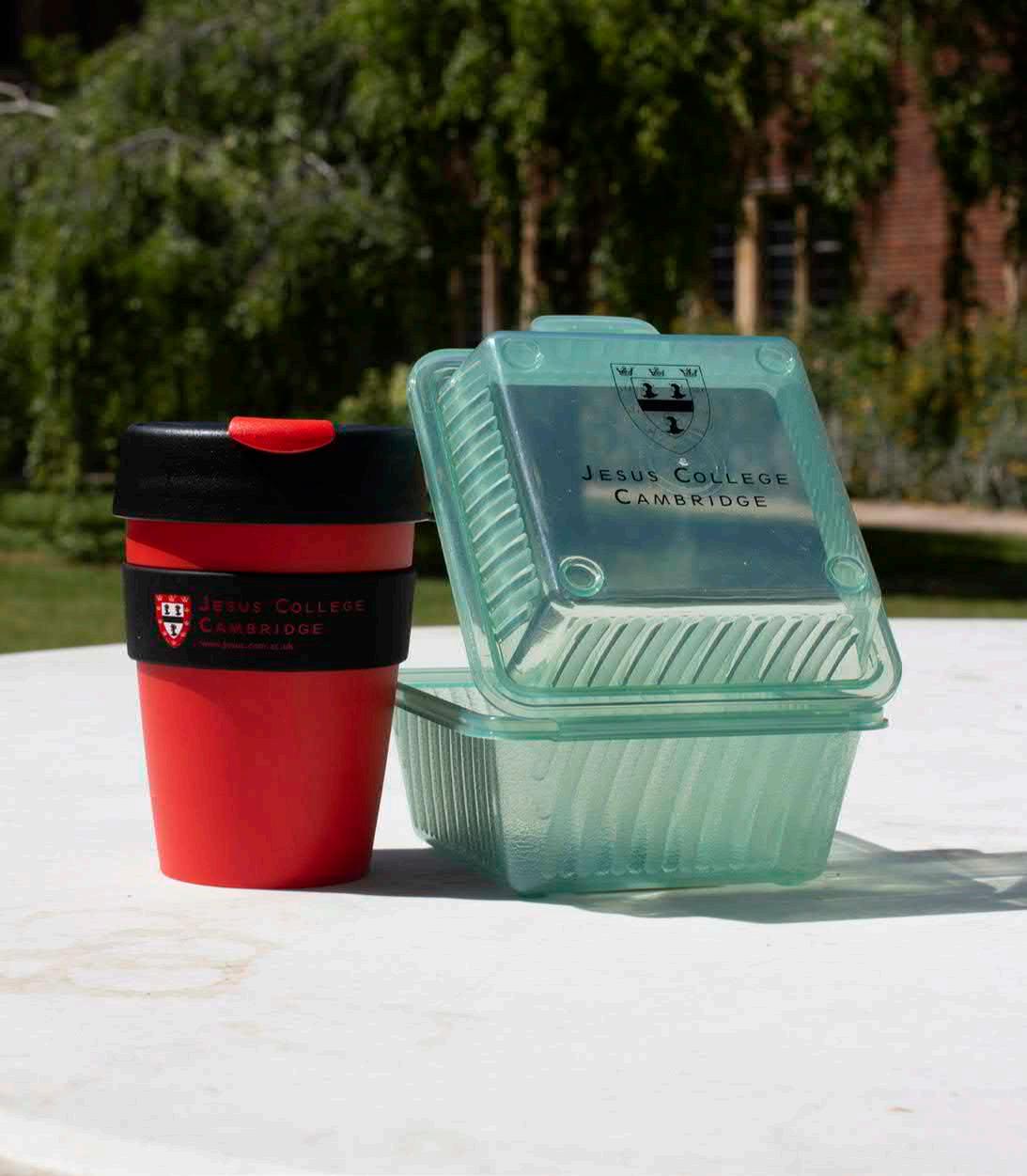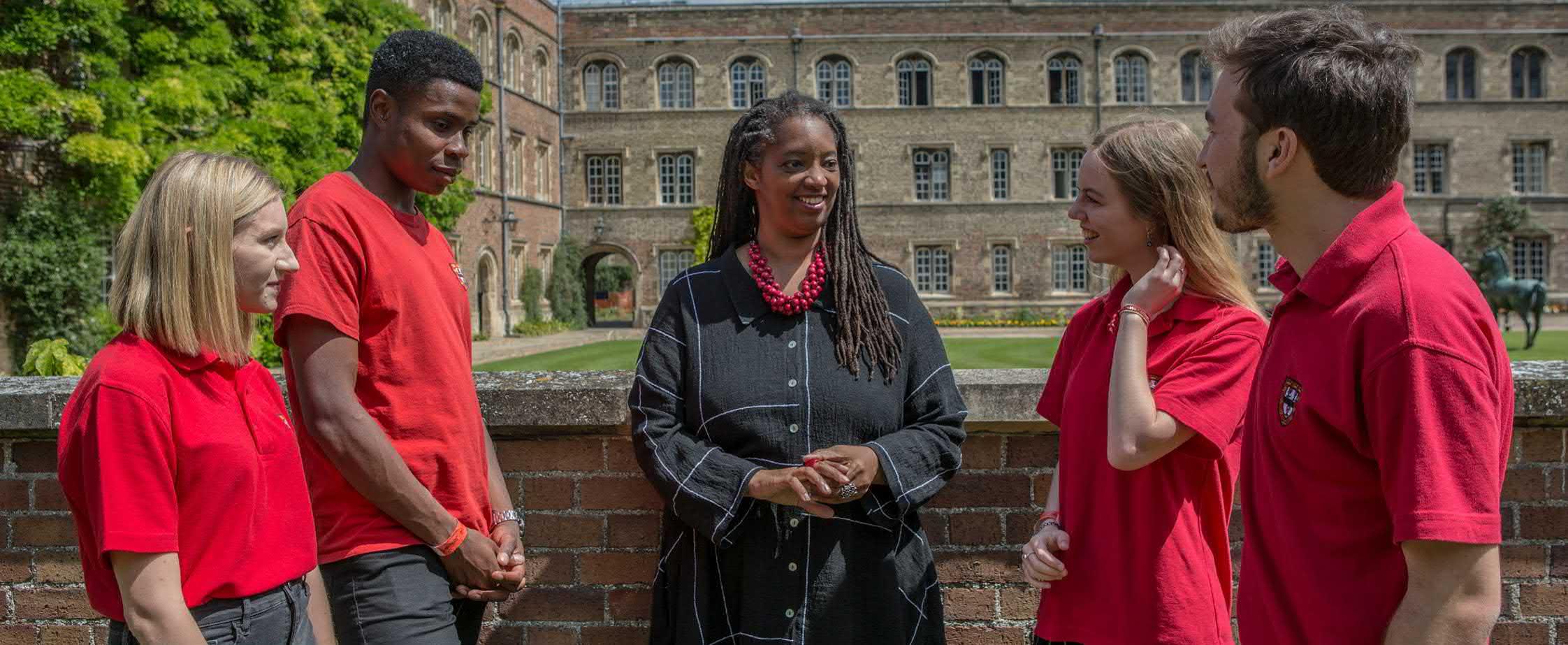
4 minute read
SDG 12 Responsible consumption and production
The College is home to around 1,000 people, and welcomes thousands of visitors and delegates for meetings and conferences every year. This makes it a large consumer of resources and a significant producer of waste. Responsible resource use and waste management can reduce the College’s Scope 3 emissions, with the help of individual behaviours.
What have we done so far?
Meeting and dining together is an important aspect of College life. By promoting a plant-based diet to our community, and reducing the availability of ruminant meat, we have already made significant progress in reducing Scope 3 emissions from food. Embracing scientific evidence from the University in regards to the production and consumption of food will remain a priority for the coming years.
In January 2020, the College introduced two meatfree days across all its catering venues. Tuesdays are meat-free, Fridays are fish-only and there is now a wider range of vegan options available. The College only sources fish from suppliers certified by the Marine Stewardship Council, and its main supplier has signed up to the Fishing for Litter campaign which means any litter caught in nets is collected and sorted for proper disposal or recycling. Formal and Grad Hall dinner menus now default to vegetarian options and the selection of non-seasonal food has been largely eliminated. Staff and students scrape their own plates at cafeteria sessions (in non-COVID times), which helps to measure food waste and inform the catering team.
The catering team have made great progress in reducing landfill waste. Pre-COVID, takeaway cutlery was changed to wood and all takeaway containers and coffee cups have been changed to biopolymer cardboard, to support composting. A compost bin has been added in the café for food waste and takeaway products.
In May 2021 the Change is on us! Campaign was launched. The aim of the campaign is to eliminate the use of all single-use, take-away food and drink containers on the College site. College members will have the choice to ‘sit in’ to eat, or use their own reusable take-away container. All pre-packaged ‘grab and go’ items such as simple sandwiches will remain packaged in compostable wrapping. Plastic straws have been removed across the site, and the yoghurt brand has been changed to reduce plastic waste. We have also changed our chemical supplier, in order to achieve a 60% reduction in plastic container waste. The chemicals now used have a lower environmental impact.
Takeaway containers are now more expensive, to encourage people to bring their own reusable containers instead. People are incentivised to buy “keep cups” for coffee and tea with a discount on drinks.
All sandwiches are made onsite, in order to reduce Scope 3 emissions resulting from packaging and delivery.
During the redevelopment of the Forum building, the maintenance team worked closely with the main contractors. They salvaged a considerable amount of building material, including timber, which has been reused to create back of house shelving and storage.
In the summer of 2020, seven student houses were upgraded using materials in storage from previous projects to reduce landfill waste.
We have changed our waste collection service provider, and achieved our target of sending 0% of non-hazardous waste to landfill. Currently, 75% of College waste is recycled.
What are our plans?
We aspire to set an example, ensuring our procurement decisions meet high ethical standards and have the lowest possible environmental impact. In 2021, we will introduce a set of guidelines for sustainable procurement, including a product life cycle approach. This will provide a clear framework for suppliers that includes specific mandatory sustainable elements. These include only using recyclable packaging, reducing the frequency of deliveries, using electric vehicles where possible and promoting sustainable, seasonal and local produce. This framework will help to reduce our Scope 3 emissions.
Our conference business will be made more sustainable (once we resume post-lockdown) by offering a green conference package. Initiatives include reordering the conference menu to highlight the sustainable food options, with ruminant meat not appearing on the menu unless specifically requested. Bedrooms will be bookable with or without service for multi-night stays, and linen will be changed weekly unless otherwise requested.
The bins across all catering areas and offices will be reviewed, to ensure recycling is taking place across the whole site. This is a particular challenge for shortstay guests not familiar with our facilities. We aim to increase the percentage of waste that is recycled to 80%, and will achieve this with more community engagement and the creation of localised recycling points.
Signage in our catering facilities will inform consumers about the provenance and sustainability of all our ingredients.
We will also implement a food waste monitoring and data collection system, to better identify areas for potential reduction in waste. Where appropriate, preordering of meals will be encouraged.
Aims and targets
• Maintain current zero waste to landfill status throughout 2021 and subsequent years for all College operations waste.
• Increase the amount of waste that goes to recycling to 80% by the end of 2022.
• Eliminate single use plastics across the site by 2022.
• Develop purchasing guidelines, which include a product life cycle approach, and train key staff by 2022.
• Reduce meat-based meals to 20%, increase plant-based meals to 30% and vegetarian meals to 50% by the end of 2021.
• Reduce ruminant meat-based meals to 10% by the end of 2021, with a view to eliminate ruminant meat-based meals by the end of 2022.
• Introduce signage in our catering facilities to inform consumers about the provenance and sustainability of our ingredients.
• Implement a food waste monitoring and data collection system so reduction targets can be set.











